Corynactis Quest: Dive #3 in the French Mediterranean
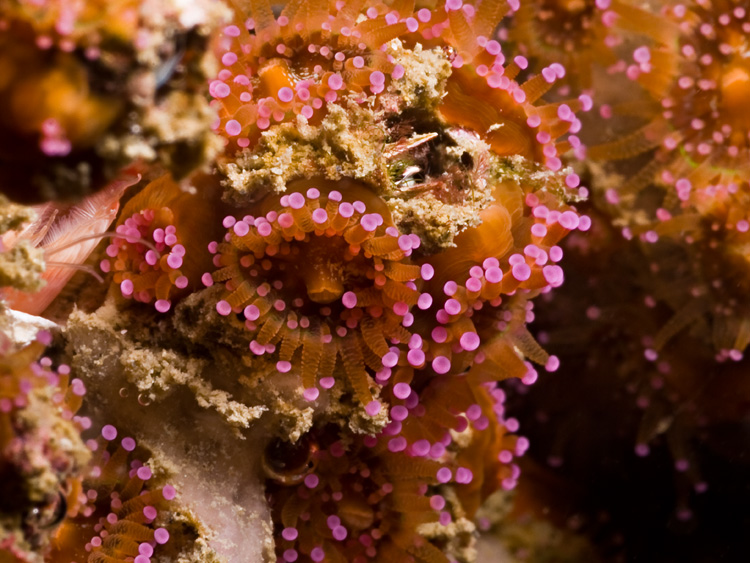
Success! The Quest is complete.
For the third dive we had a definitive lead on where we’d find the Corynactis viridis. My friend Laurent Foure is the curator of the public aquarium in Cap d’Agde; about 2.5 hours westward along the coast of the Mediterranean. Laurant is an avid diver, and is very familiar with the marine environment nearby his aquarium. He was able to connect us with a dive operator who could take us by boat to a dive spot inhabited by Corynactis viridis.
Cap d’Agde is a French ‘beach town’ that is known as a destination for nudists and hedonistic pursuits. The hotelier looked at the three of us in disbelief when we told him that we were in town to scuba dive and visit the public aquarium. He replied by giving us directions to the ‘baths’.
The water around Cap d’Agde is much more turbid than it is near Marseille. There is much less rocky coastline, and thus shore diving is an unattractive option. There is one very popular dive spot less than 500 meters from shore that all of the local dive operators frequent by boat. At this location there are a series of volcanic rock outcrops that emerge from an otherwise muddy seafloor. This hard substrate allows a variety of soft corals and invertebrates to thrive in the nutrient rich water.
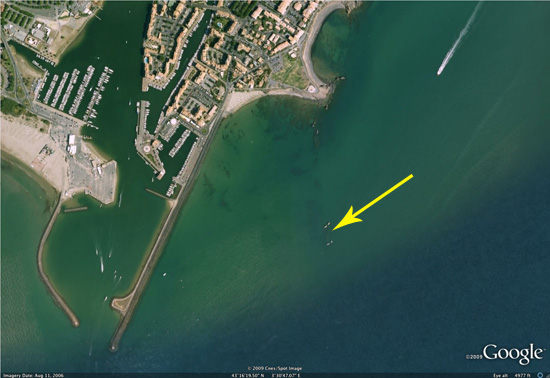
The dive site at Cap d’Agde is indicated by the yellow arrow. If you look closely, you can even see boats attached to the mooring buoys at this popular location.
Laurent was unable to dive with us, as he had just recently broken his foot while working behind the scenes at the aquarium. However, his lovely wife Nathalie came along. It was obvious from the moment we submerged, that the water conditions were significantly different from the previous places we had scouted for Corynactis near Marseille. Visibility was about 3 meters at best, and I was told that this was a “good day”. It is very clear that Corynactis viridis prefer particulate-laden water to thrive.
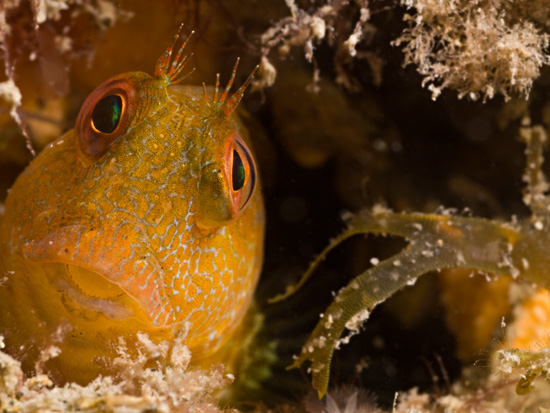
This curious yellow blenny was one of the first creatures to greet me on the dive.
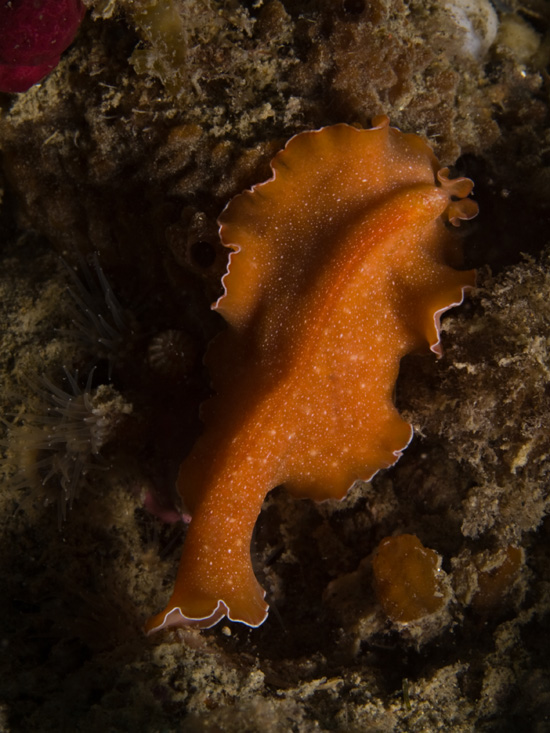
A Pseudoceros sp. flatworm crawling along the detritus covered seafloor.
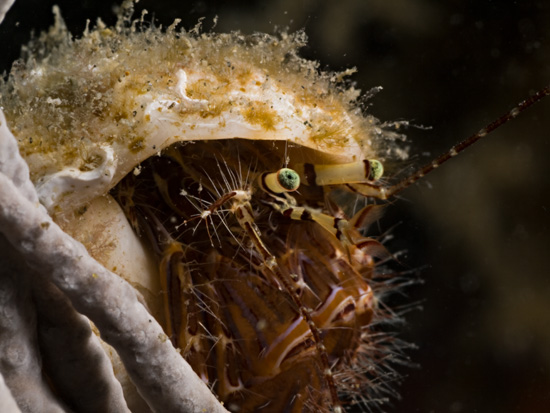
This ‘dirty’ hermit crab (on a gorgonian) further exemplifies the pervasive silt and algae that covered any available surface.
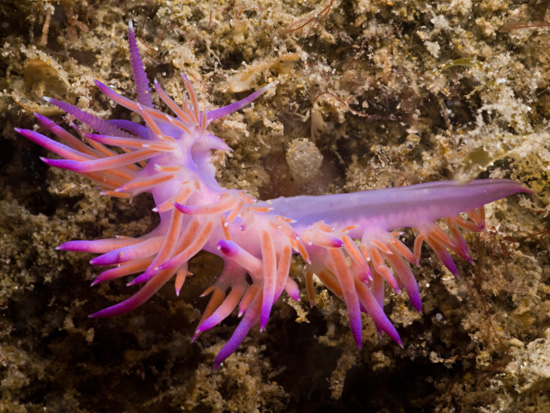
This Flabellina affinis aoelid nudibranch stands out brightly against the drab colors of the seafloor. This species feeds specifically upon small hydroids.
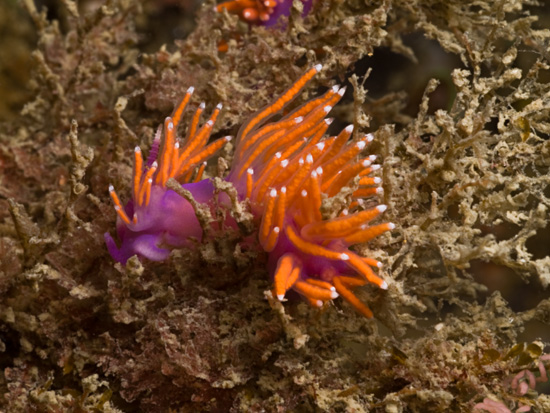
This is a very similar Flabellina ischitana nudibranch. You can see the recently laid pink strand of eggs in the bottom right-hand corner of the photograph; its mate can just barely be seen in the top center.
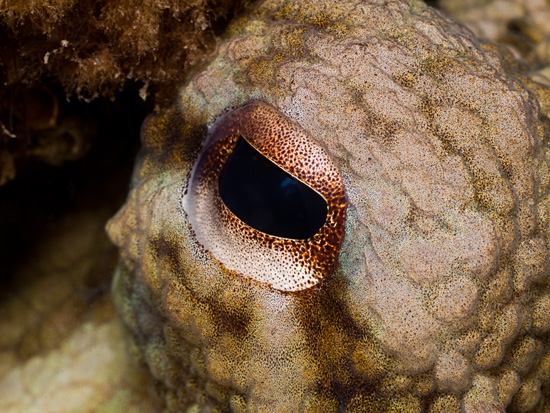
The intelligent and inquisitive eye of the common Mediterranean Octopus vulgaris, commonly found on plates at local seafood restaurants 
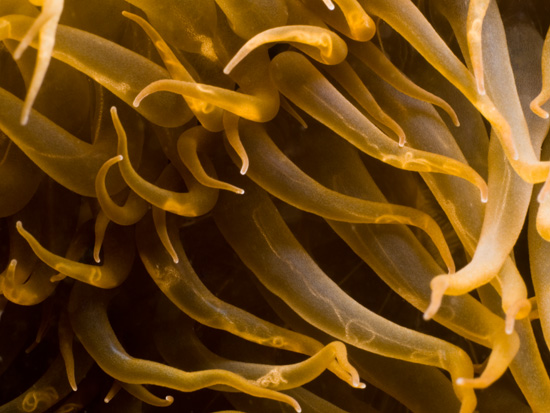
Aiptasia mutabilis anemones were abundant.
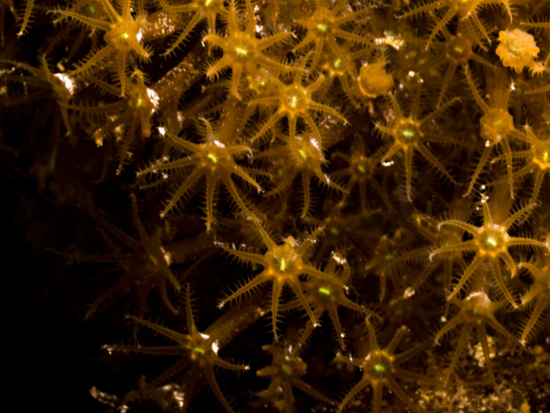
These Paralcyonium spinulosum polyps are very clavularia-like, and have neon green mouths.
I found that the relatively horizontal rock surfaces were covered with rather uniform red-brown color morphs. There were literally tens of thousands of these corallimorphs covering the sea floor.
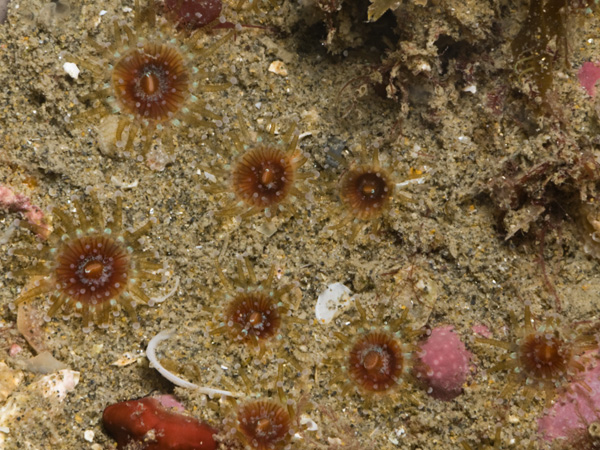
To put things into perspective, each Corynactis viridis polyp measures only about 1 cm in diameter.
Towards the end of the dive I explored an area that had significant vertical relief and underhangs. It was here that suddenly I was confronted with a bevy of colorful Corynactis viridis morphs with about 15 minutes of air left in the tank. Not only was there a wide variety of color morphs in this area, they also tended to grow in greater density with less empty space between polyps. And without further ado, a variety of exquisite Corynactis viridis color morphs:
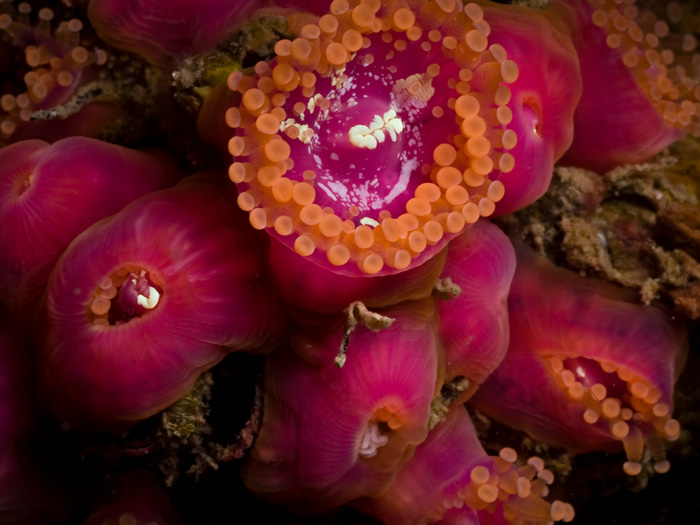
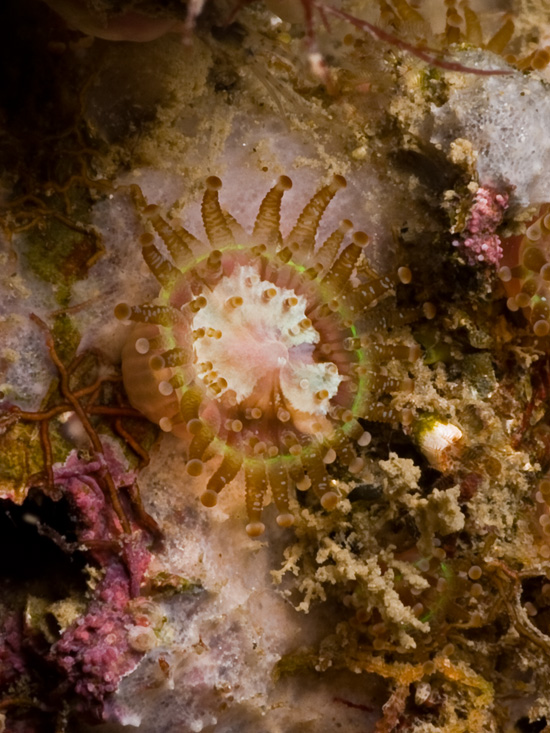
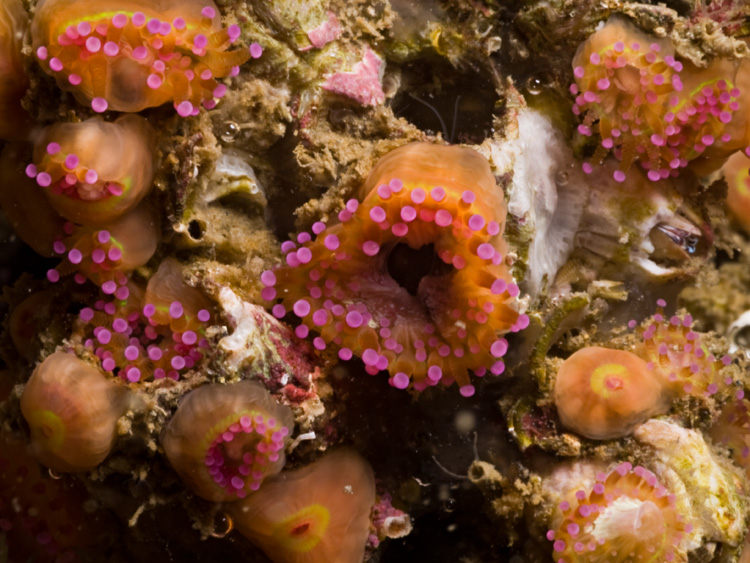
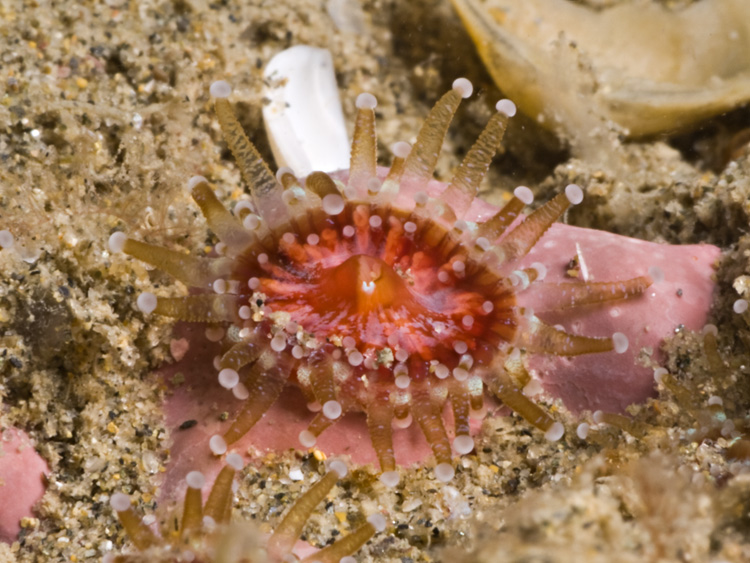
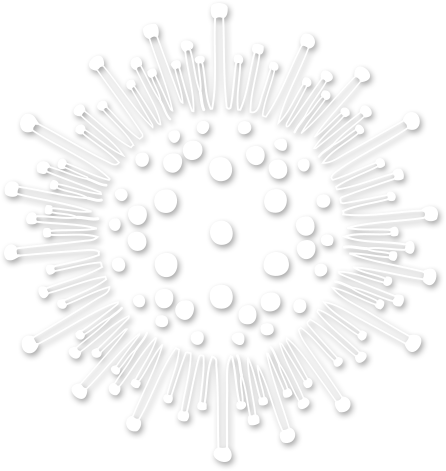
July 7th, 2009 at 9:38 am
[…] http://coralmorphologic.com/b/2009/07/02/corynactis-quest-dive-3-in-the-french-mediterranean#more-12… […]
July 12th, 2011 at 9:01 am
[…] sea. So far they have found a Curly-Q here and a Parazoanthus there but their latest find, Corynactis viridis, is noteworthy to share with a broader audience. This beautiful little Corallimorph is a relative […]